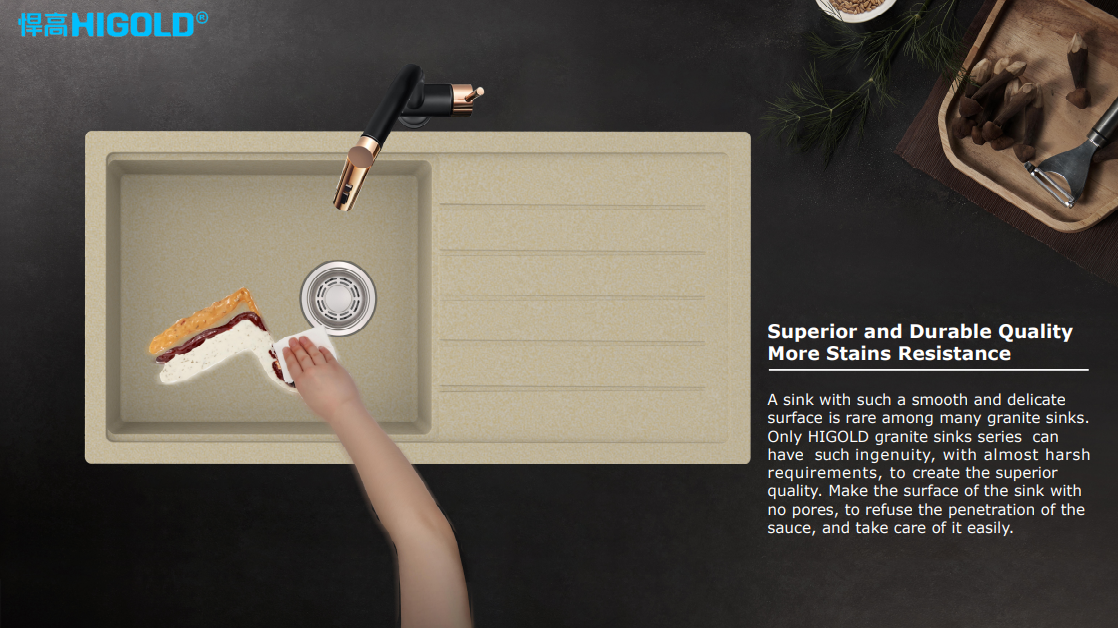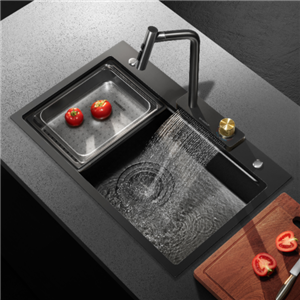Can I pour bleach into a composite kitchen sink?
Bleach is a powerful cleaning agent commonly used in household cleaning, and is widely used for disinfection, decontamination, and odor removal. However, when we clean the kitchen sink in our daily lives, can we pour bleach into the composite kitchen sink for cleaning? This seemingly simple question actually involves many considerations about the sink material, cleaning methods, and the safety of bleach use.
This article will comprehensively analyze this issue from the aspects of the chemical properties of bleach, the material characteristics of composite kitchen sinks, and the possible effects of bleach on composite sinks, so as to help consumers make reasonable cleaning decisions.

Chemical properties and scope of use of bleach
Bleach is a chemical substance with chlorine as the main component, which is widely used in household and industrial cleaning, especially in the disinfection process of decontamination, removal of bacteria and viruses. The chemical composition of bleach is usually sodium hypochlorite (NaClO), which decomposes stains and pigment molecules through oxidation reactions, so it is effective in removing stubborn stains.
● Strong oxidizing property of bleach: Bleach is a strong oxidizing agent that can effectively decompose and destroy organic matter in dirt. However, this strong oxidizing property also means that it is highly corrosive to some substances, especially in the case of long-term or excessive use, it may cause damage to some materials.
● Disinfection effect of bleach: The disinfection effect of bleach also makes it a common item for kitchen cleaning. Its powerful bactericidal effect can eliminate bacteria and viruses in the sink and keep the kitchen environment hygienic.
● Restrictions on the use of bleach: Although bleach has its unique advantages in cleaning, its use is not suitable for all materials. Due to the corrosiveness of bleach, it needs to be used with special care to avoid contact with materials or surfaces that are not resistant to oxidation. Therefore, it is very important to understand the adaptability of different sink materials to bleach.

Material characteristics of composite kitchen sink
Composite kitchen sinks are usually made of natural stone powder (such as quartz sand, granite particles) and resins, polymers and other materials. Common composite kitchen sinks include quartz composite kitchen sinks and stainless steel composite sinks. The performance and appearance of composite kitchen sinks vary greatly depending on the synthesis process and formula. Understanding the material characteristics of composite sinks can help us better judge whether bleach can be used for cleaning.
● Quartz composite kitchen sink: Quartz composite sink is one of the most common types of composite sinks on the market. It is usually synthesized by high temperature and high pressure from materials such as quartz sand and resin. Quartz itself is a mineral with high hardness and good scratch resistance and stain resistance. Quartz composite kitchen sinks have high heat resistance and corrosion resistance, and can usually withstand high temperatures and regular detergents in daily kitchens.
● Stainless steel composite kitchen sink: Stainless steel composite kitchen sinks are synthesized from stainless steel and other metal materials, and usually have a smooth and durable surface. It has good corrosion resistance, but it is slightly inferior to quartz composite sinks in appearance and stain resistance. The surface of stainless steel composite kitchen sinks is more prone to water stains and oil stains, and requires regular cleaning and maintenance.
● Composite kitchen sink's oxidation resistance: Composite kitchen sinks usually have good oxidation resistance and corrosion resistance, but whether they can withstand the oxidation of bleach needs to be judged according to the specific material and usage conditions. Quartz composite sinks are usually more tolerant to bleach, but excessive use of bleach may cause surface damage. When using bleach on stainless steel composite sinks, special attention should be paid to avoid oxidative damage to the surface.

What effect does bleach have on composite kitchen sinks?
After understanding the properties of bleach and the materials of composite kitchen sinks, we can further explore the specific effects of bleach on composite kitchen sinks. Different composite kitchen sink materials also react differently to bleach, so the correct method of use is crucial.
1. Quartz composite kitchen sink:
Quartz composite sinks perform relatively well in daily use of bleach due to their hard surface and good corrosion resistance. However, long-term or excessive use of bleach may cause certain effects on their surface.
● Possible damage: The strong oxidizing property of bleach can cause a chemical reaction on the resin part of the surface of the quartz composite kitchen sink, which may cause fading, yellowing or discoloration on the sink surface. Long-term use of bleach may also cause fine cracks or damage to the sink surface, affecting its appearance and service life.
● Recommended cleaning method: For quartz composite sinks, it is recommended to use a mild detergent for daily cleaning and avoid pouring high-concentration bleach directly. If disinfection is required, bleach can be diluted with water and used to avoid direct contact with the sink surface. In addition, wipe the sink dry in time after cleaning to avoid water stains and bleach residues from damaging the sink surface.
2. Stainless steel composite kitchen sink:
The surface of stainless steel composite kitchen sinks is usually smoother, but its antioxidant property is slightly inferior to that of quartz composite kitchen sinks. When using bleach, if you do not pay attention to the method, it may cause oxidation reaction on the stainless steel surface, forming brown spots or water stains.
● Possible damage: The strong oxidizing property of bleach will accelerate the oxidation of the stainless steel surface, causing rust or discoloration on the sink surface. In addition, the chlorine component in bleach may react with the metal elements in stainless steel, and long-term use may cause corrosion to the sink.
● Recommended cleaning method: For stainless steel composite kitchen sinks, bleach should be used after dilution, and avoid pouring high-concentration bleach directly. After cleaning, be sure to rinse thoroughly with clean water to ensure that bleach does not remain on the surface of the sink, and wipe the sink dry in time to reduce the risk of water stains and oxidation.

Precautions for cleaning composite kitchen sinks
In addition to the use of bleach, you also need to follow some basic maintenance principles when cleaning composite kitchen sinks on a daily basis to extend the life of the sink and maintain its appearance.
● Avoid using strong acid or strong alkaline cleaners: Although bleach is common, it is not the only chemical that can be used to clean sinks. For composite kitchen sinks, you should avoid using cleaners containing strong acid or strong alkaline ingredients, which may corrode the surface of the sink or affect its material.
● Dry the sink in time: After cleaning the sink, wipe the sink surface with a soft cloth in time to avoid water stains and dirt accumulation, and keep the sink clean and new. Especially for quartz composite kitchen sinks, long-term water stains may cause the sink surface to turn yellow.
● Use mild detergent: It is best to use a mild detergent, such as a neutral detergent, with a soft cloth or sponge for cleaning to avoid scratching the sink surface. During the cleaning process, avoid using hard objects such as steel wool, which may scratch the sink surface.
● Regular deep cleaning: Although the composite kitchen sink has strong stain resistance, some stubborn stains may still accumulate over time. Therefore, regular deep cleaning and disinfection are necessary. You can choose a professional sink cleaner, or use a mild natural cleaning method, such as a mixed solution of white vinegar and baking soda for cleaning.
Top Manufacturer of Stainless Steel Sinks for Your Business
Higold Group is a top manufacturer of stainless steel kitchen sinks and faucets, offering high-quality products at low prices. With advanced automated production facilities and over 20 years of experience, we guarantee timely delivery and competitive pricing. We specialize in custom designs and OEM/ODM services for bulk orders. Contact us for wholesale pricing and get personalized quotes tailored to your business needs!




